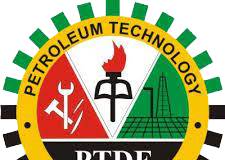Indications emerged Thursday that the much-celebrated scheme to move cattle and grains from the northern part of the country to markets, industrial zones and ports in the south has been suspended.
In January 2016, the Nigeria Incentive-Based Risk Sharing System for Agriculture (NIRSAL) formally launched the commencement of its National Farm to Market Scheme to enable a low cost and efficient transport link between agricultural producers and consumers across the country, particularly the North to South movement of cattle by rail.
The epoch-making event witnessed the movement of the first 15 wagons of 500 cattle which left Gusau, Zamfara State to Lagos. The historic journey lasted for about two days with the final stop at Oko-Oba.
The initiative was in collaboration with the Nigeria Railway Corporation (NRC) and Connect Rail Services.
A similar initiative followed in February 2017, when NIRSAL also in partnership with NRC inaugurated the first stage of the initiative, whereby a consignment of 800 tonnes of soybeans left Funtua, Katsina State for Apapa port, Lagos for exports.
The scheme was in line with the objective of the federal government on making agriculture a key anchor of economic diversification and aimed to drastically reduce the cost of transportation of grains, enhance the income of smallholder farmers, boost exports and preserve scarce foreign exchange in line with the agricultural promotion policy of the Buhari’s administration.
However, barely four years after its take-off, the collaboration had allegedly fallen apart largely due to the failure of NRC to keep to its part of the agreement by ensuring that the rails were in good condition to ease transportation.
Speaking during an interactive session with journalists in Abuja yesterday, the Managing Director of NIRSAL, Mr. Aliyu Abdulhameed said there were damaged rail lines especially between Jebba and Mokwa, which had made it difficult for the north south project to progress.
He said:”You see when it is a pure play NIRSAL without third parties we tend to execute our job. It’s out of the livestock project we have had but when you have too many cooks, they say it spoils the broth.
“Here we are partnering another company that is organising the transportation system, guess what, the biggest elephant in the room- the Nigerian Railway Corporation.
“We tried that model and it kind of worked but between Jebba and Mokwa, the line was broken- and these were live animals.”
Abdulhameed insisted that the NRC will have to play its role as enshrined in their agreement for the initiative to resume adding that the concept has been retired to the shelf at the moment.
“As much as we want to execute the project, we can only do it when NRC is working and so you can see this is beyond my core.
“But the concept is on the shelf and the moment NRC gets their acts together-when all these broken lanes are done- we are definitely going to reactivate it (the project).
“The most important thing is have we designed it? Yes. Have we tested it? Yes. Have we learnt our lessons? Yes. So, let’s all wait for the other party to do its job.”
The grains-by- rail initiative was another dimension of the transport segment of the NIRSAL’s Farm to Market Scheme which was flagged off the previous year with the historic movement of cattle by rail from Gusau, Zamfara State and Nguru, Yobe State to Lagos.
The NIRSAL boss had hoped the scheme would reduce the cost of transporting grains from the north to the south by over 20 per cent, boost local production, boost exports and help to conserve scarce foreign exchange.
The corporation had on its part expressed delight at the take-off of the scheme and commended the NIRSAL management for accepting to play the very important role of facilitating bank-financing of logistical elements which are critical for the smooth operations of the scheme.
Source: THISDAY












